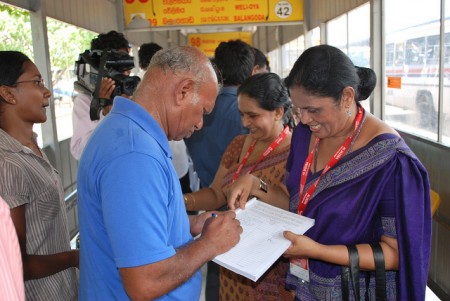
The report of the UN Secretary-General’s panel of experts on accountability in Sri Lanka, published on 31 March 2011, reveals “a very different version of the final stages of the war than that maintained to this day by the Government of Sri Lanka.” The panel findings indicate that serious violations of international humanitarian law and international human rights law were committed by both the Government of Sri Lanka and the Liberation Tigers of Tamil Eelam. Some of these violations, if proven, “would amount to war crimes and crimes against humanity.” The UN also got its share of criticism, for failing to take action that might have protected civilians during the final stages of the war.
Unsurprisingly, the Sri Lankan Government denounced the report as “fundamentally flawed”. The Ministry of External Affairs alleged that, among other deficiencies, the report was based on biased material and presented without verification. Although it was originally a joint commitment by the UN Secretary-General and the President of Sri Lanka, the government objected to the publication of the report and claimed that it could damage reconciliation efforts between the Sinhalese majority and the Tamil minority in the country. The government is now seeking international and local support as part of an effort to counter the UN panel report and the implementation of its recommendations.
On the other hand, the Tamil National Alliance (TNA) – the main political party representing the ethnic minority – welcomed the panel’s recommendations and expressed hopes that they will be implemented. The odds are not on their side, however. Sri Lanka is a party to several human rights treaties, which require it to investigate alleged violations of international humanitarian and human rights law and prosecute those responsible. But the current government does not seem to feel obliged to comply with those treaties. With strong allies such as Russia and China, it will also not likely be pressured into doing so.
Meanwhile, State Intelligence Unit personnel are threatening Tamils walking along roads in cities of the southern part of the country; they are being forced to sign petitions in the government’s attempt to collect one million signatures against the UN panel report. Those refusing to sign are threatened and subjected to bodily harm. President Rajapaksa is planning a May Day rally to protest against the UN and its findings, and his own eight member Lessons Learnt and Reconciliation Commission (LLRC) – appointed to report on the events between February 2002 and May 2009 – is expected to present its finding to the government by the end of May 2011.
The Sri Lankan government says the UN Panel report is biased and favors Tamils. However, the LLRC is appointed by the President of Sri Lanka and the members have been eminent persons in his government. It is thus doubtful whether the Tamil community will accept the commission’s report as being unbiased and driven by an honest concern to prosecute those who violated international humanitarian law and human rights law – no matter which ethnic community they belong to.

